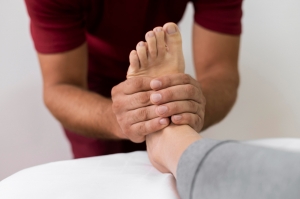Recovery from addiction is rarely a journey that can be taken alone. Whether it involves alcohol, drugs, or other dependencies, the path toward healing requires more than willpower; it demands structured guidance, emotional support, and compassionate care. Understanding the role these elements play can make the difference between short-term relief and long-lasting recovery.
The Importance of Professional Guidance
One of the cornerstones of recovery is professional guidance. Addiction often alters the brain's chemistry, making it difficult to manage cravings and triggers without expert support. Professional guidance provides a roadmap for recovery, helping individuals understand their patterns, recognize warning signs, and develop coping strategies.
Guidance in recovery doesn't just focus on abstaining from substance use. It also addresses the psychological and behavioral aspects of addiction, including underlying mental health conditions, emotional triggers, and social pressures. For many, this professional oversight offers the structure necessary to regain control over their lives and build sustainable habits.
Personalized Care as a Foundation
Equally vital to recovery is personalized care. Every individual's experience with addiction is unique, and recovery plans must reflect this reality. Personalized care considers factors such as the severity of addiction, co-occurring health conditions, family dynamics, and personal goals.
Providing care tailored to an individual's needs encourages engagement and fosters a sense of trust between the patient and care provider. This human-centered approach reassures patients that their recovery journey is not just about following rules but about understanding themselves and reclaiming their lives.
Emotional Support and Community
Guidance and care extend beyond clinical interventions. Emotional support from therapists, peers, and family members plays a crucial role in sustaining recovery. Building a network of support helps individuals feel understood, reduces feelings of isolation, and encourages accountability.
Community involvement, whether in support groups or peer-led programs, creates a shared environment where experiences are validated and progress is celebrated. This collective encouragement often strengthens resilience and reinforces the belief that recovery is achievable.
The Role of Family and Loved Ones
Families and loved ones are often the first line of support for someone in recovery. Educating families about addiction and involving them in the recovery process can improve outcomes significantly. When families provide consistent encouragement and set healthy boundaries, they create a stable environment conducive to healing.
Moreover, loved ones who understand the challenges of recovery can help prevent relapse by recognizing early warning signs and offering timely intervention. The combination of professional guidance and supportive personal relationships forms a safety net that makes sustained recovery more attainable.
Seeking the Right Treatment
Finding the right treatment program is another critical step. Comprehensive programs combine medical care, counseling, behavioral therapy, and ongoing support to address all aspects of addiction. Programs such as Treatment for alcohol addiction offer structured pathways that integrate detoxification, therapy, and follow-up care to ensure patients have the tools they need for long-term success.
Choosing a program that emphasizes both guidance and care ensures that recovery is approached holistically. Patients are not only treated for their physical dependency but are also supported emotionally and mentally, laying the groundwork for a balanced and fulfilling life beyond addiction.
The Road to Recovery
Recovery is a multifaceted journey that cannot be achieved through willpower alone. Professional guidance, personalized care, emotional support, and the involvement of loved ones collectively create the conditions necessary for lasting change. By seeking treatment programs that emphasize these elements, individuals struggling with addiction can find a path to healing that is both structured and compassionate. The combination of expert guidance and caring support turns recovery from a daunting challenge into a realistic, hopeful possibility.






